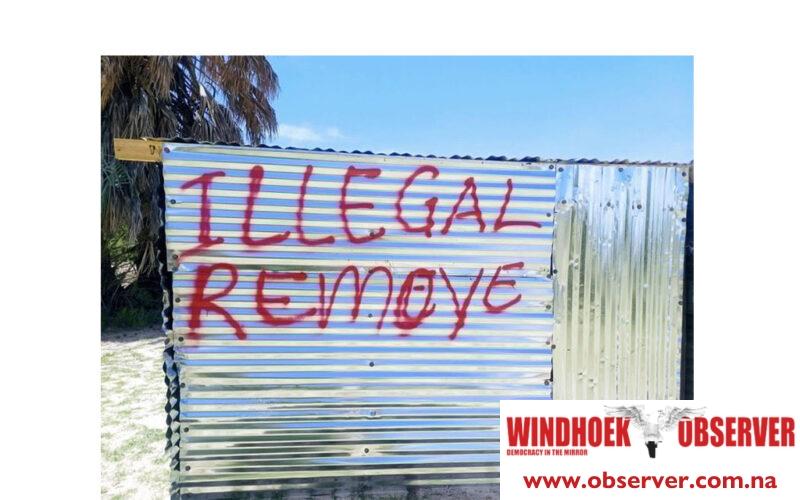Allexer Namundjembo
The Ongwediva Town Council has called on residents to refrain from occupying land illegally.
In an interview with the Windhoek Observer, town spokesperson Otilie Shingenge revealed that the local authority has identified several illegal shacks in the Omatando area.
She cautioned residents against unlawful land occupation to avoid penalties or the risk of losing their properties.
“The Council’s process involves notifying the owner through markings on the shack, giving them seven days to remove it. If the owner fails to do so, the Council, empowered by the Town Planning Scheme, is authorized to remove the shack. I don’t have specific numbers of illegal shacks, but there are quite a lot, and they are found in different areas,” said Shingenge.
According to Shingenge, the Council issued notices to the owners of the illegal shacks, providing them with a seven-day deadline to remove their structures or face the consequences.
She added that the Council is willing to work with residents who approach them to agree on a timeline for removing their shacks.
“We do not encourage unlawful practices, as they hinder proper development, diminish the town’s value, and create chaos in terms of management. As an urban area, the town must create a conducive environment for both residents and potential foreign investors,” she said.
Shingenge added that the Council cannot currently pinpoint the cause of illegal land occupation, as the process of acquiring land is the same everywhere.
According to her, this process follows the standard procedures that everyone must adhere to when acquiring land.
“The availability of land involves several factors, including the need for the council to service the land before it can be allocated to individual applicants. This process of land servicing requires significant finances, which, in most cases, can be cumbersome,” Shingenge explained.
Moses Silas, a Political Action Committee member of the Landless People’s Movement (LPM), criticized the council, suggesting that illegal land occupation stems from residents’ unmet needs rather than a lack of respect for authority.
“Did people apply for land before or not? If so, then why is the town council not giving the land to the people? If the government is turning a blind eye to the people, then people will act and take the land on their own,” he said.
Silas also accused the Council of delaying action until after the elections, calling it a politically motivated move.
“When did these people occupy that land? If it was before the election, why were they not removed immediately? But one has to wait until after the elections to remove them. That’s the Swapo mentality,” he said.




